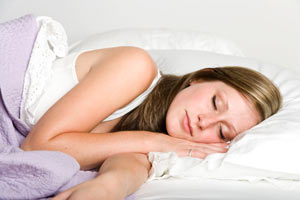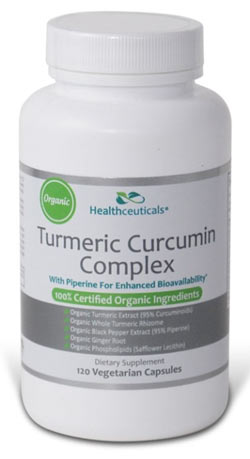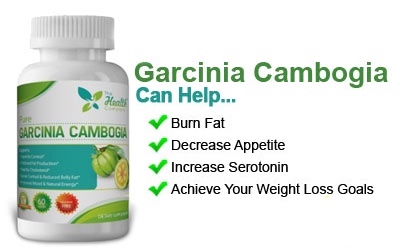
Most of us, once we're adults anyway, enjoy sleeping. It's cozy, relaxing, and gives us a chance to escape from worrying and running around for a bit. But how many of us think of sleep as an important part of our overall health, just like diet and exercise?
Sleep has been heavily researched and found to be vital in many aspects of a person's health and well-being. Below are just some of the ways that a good night's sleep (or lack thereof) may impact your health.
Learning and Memory
Many students wish that they could learn their material by osmosis; it would be great if sleeping on the book would transfer its information into your brain. While it doesn't quite work like that, sleep is extremely important when you are trying to learn something (Sleep, Learning, and Memory, 2007g). Researchers have shown that people who are trying to learn a new skill perform better on that task after they've had some sleep; often even better than if they had more practice than the person who had more sleep. This is important for adults and kids trying to learn new things. In fact, studies have shown that kids who get the proper amount of sleep get better grades than those who are sleep-deprived.
Your brain also works to consolidate and store your memories from the day while you sleep at night. Studies have shown that people are more like to save false memories if they haven't had a good night's sleep (K. M. Fenn, 2014g). The implications of that range from annoying to highly damaging.
Inflammation
Inflammation is an immune response that occurs in response to an inciting stimulus. This may be a bacteria, virus, wound, chemical, or one of many other things that are irritating to the body. Inflammation may be obvious, like redness and swelling around an external wound. It may also be "silent," as with the increase in certain types of cells present in the bloodstream. Although researchers aren't exactly sure how, it is known that sleep can decrease inflammation and heal cells.
For instance, C-reactive protein, an inflammatory substance in the blood that is associated with increased rates of heart disease, is often elevated in people who don't get enough sleep (Meier-Ewert, 2004g). This means that sleep can decrease levels of C-reactive protein (although scientists aren't sure how) and lower a person's risk of developing heart disease.
Weight
It may be surprising for you to learn that people who don't get enough sleep are more prone to obesity than those who sleep 7 or 8 hours a day. Not only could a lack of sleep decrease your motivation to exercise and move around, but sleeping helps regulate body hormones such as leptin that affect appetite. If you don't get enough sleep, you are more likely to feel hungrier and overeat. People with sleep disorders such as apnea that further affect sleep quality and quantity are even more prone to obesity (Obesity and Sleepg).
Stress
Stress is such a heavily-used word today that it may feel like it's losing its meaning. After all, life is stressful, and it may not seem like there's any way to avoid it. However, it's important to note that not getting enough sleep increases peoples' stress levels. Coping with everyday pressures is more difficult when you haven't slept long enough or had good quality sleep. As sleep decreases and stress increases, the cortisol levels in the body increase as well, and this is another way in which weight can be impacted. Increased cortisol can cause weight gain and also make it harder to lose weight.
Emotions
People who haven't slept well are more likely to react emotionally to minor inconveniences such as interruptions to their work. You won't be as well-equipped to handle problems when you're tired and you will be more prone to react with anger or frustration. Not only that, but the threshold for experiencing positive emotions is increased when you are low on sleep. In other words, when good things happen, you aren't as happy about them if you haven't slept well (Zohar, 2005g).
Depression is more commonly seen in people with long-term sleep deprivation, as well. However, the relationship between sleep and depression isn't fully understood. In some cases, sleep problems may cause depression, but it may be the opposite in other cases (Depression and Sleepg).
Accidents
One out of every five car accidents in the U.S. is linked to a sleepy driver. Studies have proven that driving tired is similar to driving under the influence of alcohol: reaction times and judgment are impaired (White Paper: Consequences of Drowsy Drivingg).
And car accidents aren't the only mishaps that are more likely to occur when you're tired. Cuts, burns, falls, subbed toes, and sprained ankles are just some of the potential injuries that happen more commonly when you haven't slept well.
Sex Life
People who get adequate amounts of sleep often have better sex lives than those who don't. Not only does sleeping well increase your mood and give you the energy required to be amorous with your partner, but a lack of sleep is also related to decreased testosterone levels (Rachel Leproult & Eve Van Cauter, 2011g). Testosterone contributes to sex drive in both men and women. And a healthy sex life can lead to better mood and more restful sleep so that a healthy cycle can ensue.
Diabetes
The rate of occurrence of Type 2 diabetes is much higher in people who don't get enough sleep, whether they are overweight or not. This seems to be due to sleep's effect on the way the body handles glucose.
Researchers studied the effect of sleeping during the day (like shift workers must do) vs. sleeping at night on blood sugar levels. After just three days of nighttime wakefulness, peoples' blood glucose levels had increased. These results indicate that those who don't sleep well at night or those whose work requires them to be awake at night may be at a higher risk of developing Type 2 diabetes (Christopher J. Morrisa, 2015g).
Pain Thresholds
If you are in pain, it may be hard to fall asleep or stay asleep. But did you know that sleep deprivation can even make pain feel worse?
Nine men were tested for pain tolerance after their sleep was interrupted to varying degrees and during different sleep stages. It was found that people with sleep deprivation rated their pain scores higher than those who slept well. When the interruption occurred during SWS (slow wave sleep, the sleep that is not associated with dreaming) and the person experienced recovery sleep, the resulting increase in pain tolerance was equal to that of some pain medications (Onen, 2001g). Sleep deprivation can actually be painful, and catching up on sleep can be like taking a pain-reliever.
Immunity
An extremely interesting study was done in 2009 on the effects of sleep loss on immunity. People kept track of how well they slept for two weeks. At that time, participants were exposed to a cold virus and then monitored for whether or not they became sick. The results showed that people who averaged less than 7 hours of sleep per night and those who had poor sleep efficiency (how much of the time they spent in bed was actual spent sleeping) were more likely to become sick (Sheldon Cohen, 2009g).
This study was remarkable because it didn't rely on peoples' memories of how well they slept prior to developing a natural cold, as many studies have. Instead, sleep habits were recorded in real time and then the participants were exposed to a cold virus.
Athletics
Getting good sleep can help you on the field, court, track, or in the pool. If you play sports or do other physical activities, you'll probably find that being well-rested allows you to do better with less risk of injury than if you are sleep-deprived.
A study was done on college-aged basketball players that measured their performance in several areas. Then the players were instructed to get much more sleep every night than they had been getting. The performance indicators were then retested. The players experienced significant improvement in their performance when they'd had more sleep (Cheri D. Mah, Volume 34, Issue 07g).
Migraines
There have been several studies linking the occurrence of migraine headaches with the disruption of REM (rapid eye movement, the period of sleep in which people dream) sleep. A recent study with rats indicates that deprivation of REM sleep results in the increase of a certain protein level associated with chronic pain. Some sleep disorders such as insomnia and sleep apnea can cause disturbances of REM sleep and increase the likelihood that a person will suffer from migraines and other pain disorders.
Cancer
Certain types of cancer seem to occur more prominently in people who work rotating night shifts for long periods of time. One study found that nurses who spent fifteen years or more working at least three overnights a week were at higher risk of developing colorectal cancer (Schernhammer, 2003g). Other studies have linked increased breast cancer risk to disturbances in melatonin in shift workers, a hormone that is controlled by exposure to light.
Heart Disease
Not getting enough sleep and/or sleep disturbances have been linked to various heart disease risks including high blood pressure, plaque buildup on artery walls, high cholesterol, and obesity. The increase of some heart disease-related substances in the blood, such as C-reactive protein, have also been linked with poor sleep (Meier-Ewert, 2004g).
So Sleep Is Important
That's a pretty exhaustive list of health conditions that are affected by quality and quantity of sleep. And scientists feel that they have only just begun to define what sleep does for our bodies. With so much riding on good sleep, it's important to know some of the things that can interfere with it. Below is a list of the most common sleep disruptors.
- Pain
- Prescription medications
- Stress
- Caffeine
- Nicotine
- Alcohol and drugs
- Sleep apnea and other sleep disorders
How Can You Get Better Sleep?
Luckily, there are some tried-and-true methods for improving the quality and quantity of your sleep. These include:
- Going to sleep and getting up at the same times each day, including on weekends and days off.
- Creating a bedtime routine that includes relaxing activities such as a warm bath, meditation, and reading (not screens, though) for an hour before bedtime.
- Avoiding caffeine in the afternoon.
- Exercising earlier in the day, rather than right before bed.
- Steering clear of napping during the day.
- Avoiding too much food right before bedtime.
- Creating a relaxing space for sleeping: your room should be dark, quiet, cool, and not contain any electronics. (Consider blackout curtains to keep any outside light from entering your bedroom.)
- Getting exercise every day, preferably outside.
Sometimes You Need a Doctor's Input
See a doctor if:
- You have loud snoring.
- Someone tells you that you stop breathing periodically while sleeping.
- You feel that you have a medical condition like chronic pain that is interfering with your sleep.
- You believe that one of your medications may be negatively affecting your sleep.
Works Cited
- Cheri D. Mah, M., Kenneth E. Mah, M. M., Eric J. Kezirian, M. M., & William C. Dement, M. P. (Volume 34, Issue 07). The Effects of Sleep Extension on the Athletic Performance of Collegiate Basketball Players. Retrieved from JournalSleep.org: DOI: 10.5665/SLEEP.1132g
- Christopher J. Morrisa, b. J. (2015, March 20). Endogenous circadian system and circadian misalignment impact glucose tolerance via separate mechanisms in humans. Retrieved from Proceedings of the National Academy of Sciences of the United States of America: DOI: 10.1073/pnas.1418955112g
- Depression and Sleep. (n.d.). Retrieved from National Sleep Foundationg
- K. M. Fenn, S. J. (2014, Sept. 10). Sleep Deprivation and False Memories. Retrieved from Psychological Science: DOI: 10.1177/0956797614534694g
- Meier-Ewert, R. P. (2004, Feb. 18). Effect of sleep loss on C-reactive protein, an inflammatory marker of cardiovascular risk. Retrieved from US National Library of Medicine National Institutes of Health, PubMedg
- Obesity and Sleep. (n.d.). Retrieved from National Sleep Foundationg
- Onen, A. A. (2001, March 10). The effects of total sleep deprivation, selective sleep interruption and sleep recovery on pain tolerance thresholds in healthy subjects. Retrieved from US National Library of Medicine National Institutes of Health PubMed.govg
- Rachel Leproult, P., & Eve Van Cauter, P. (2011, June 1). Effect of 1 Week of Sleep Restriction on Testosterone Levels in Young Healthy Men. Retrieved from Journal of American Medical Association: DOI: 10.1001/jama.2011.710g
- Schernhammer, L. F. (2003, June 4). Night-shift work and risk of colorectal cancer in the nurses' health study. Retrieved from US National Library of Medicine National Institutes of Health, Pubmed.govg
- Sheldon Cohen, P., William J. Doyle, P., Cuneyt M. Alper, M., Denise Janicki-Deverts, P., & Ronald B. Turner, M. (2009, Jan. 12). Sleep Habits and Susceptibility to the Common Cold. Retrieved from JAMA Internal Medicineg
- Sleep, Learning, and Memory. (2007, Dec. 18). Retrieved from Healthy Sleepg
- White Paper: Consequences of Drowsy Driving. (n.d.). Retrieved from National Sleep Foundationg
- Zohar, T. O. (2005, April 1). The effects of sleep loss on medical residents' emotional reactions to work events: a cognitive-energy model. Retrieved from pubmed.govg
You May Also Like These Articles/Recipes:
Maintain a Healthy Gut for Healthy Weight Lossg
How to Measure Your Weight Loss Results Effectivelyg
Morning Glory: Healthy Beginnings for a Healthy Dayg
Cauliflower and Pears: High Fiber, Low Carb Dietary Powerhousesg
How to Maximize the Health Benefits of Garlicg
How to Eat an Artichoke: VIDEOg


